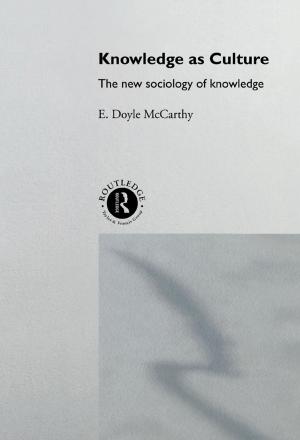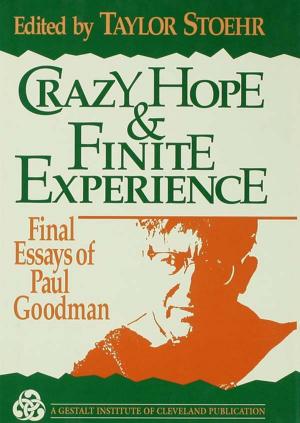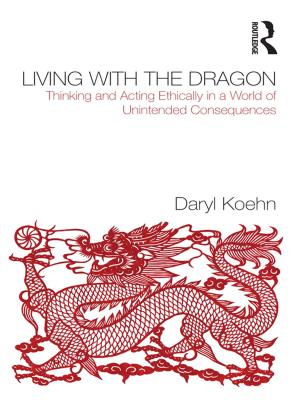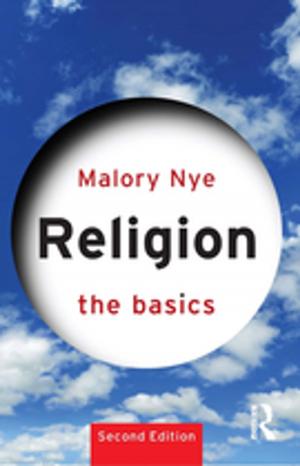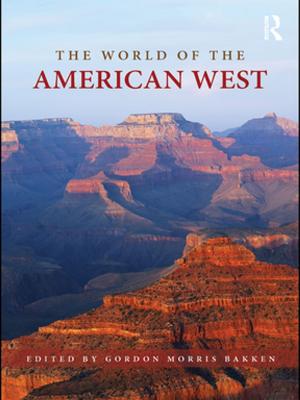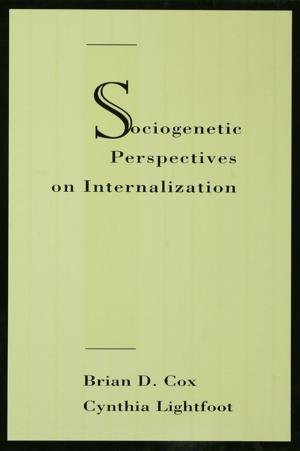The Universe of Experience
A Worldview Beyond Science and Religion
Nonfiction, Science & Nature, Science, Other Sciences, Philosophy & Social Aspects, Social & Cultural Studies, Social Science, Sociology| Author: | Lancelot Whyte | ISBN: | 9781351302265 |
| Publisher: | Taylor and Francis | Publication: | September 8, 2017 |
| Imprint: | Routledge | Language: | English |
| Author: | Lancelot Whyte |
| ISBN: | 9781351302265 |
| Publisher: | Taylor and Francis |
| Publication: | September 8, 2017 |
| Imprint: | Routledge |
| Language: | English |
Modern experience forces philosophy and social thought to confront the basic problems of value. Is this life worth caring about? How can we find a way between the deceit of fanatical belief and despair? In the view of Lancelot Law Whyte, the essential challenge to mankind today is an underlying nihilism promoting violence and frustrating sane policies on major social issues. Avoiding the seductive trap of utopianism, Whyte approaches this challenge by defining the terms of a potentially worldwide consensus of heart, mind, and will.In this volume, Whyte addresses the problems of despair and fanatical religious or political reactions that arise from despair. He begins with the basic problem of nihilism, or the tendency toward pessimism and self/other destruction that faces us at this point in human development. Rejecting all forms of religious sectarianism as separating God from the individual and people from each other, he discerns, as well, a fundamental disunity and incompleteness among the sciences that render them incapable of supplying a guide to social order. Whyte sees the universe as an arena of conflict between tendencies toward order and disorder with the former dominating and containing the latter. In place of science and traditional religion, Whyte draws upon what he sees as the unconscious tradition, a genius of the community, shared in degrees by all its members, that points mankind toward a better way of living.Whyte does not posit a state of perfection, nor does he suggest the end of human suffering. Instead he suggests that an integrated state of being, freed from the old mind-body dualism will be a new starting point in human evolution. Accessibly written and firmly rooted in science, philosophy, and history, The Universe of Experience will be of interest to sociologists, psychologists, and philosophers.
Modern experience forces philosophy and social thought to confront the basic problems of value. Is this life worth caring about? How can we find a way between the deceit of fanatical belief and despair? In the view of Lancelot Law Whyte, the essential challenge to mankind today is an underlying nihilism promoting violence and frustrating sane policies on major social issues. Avoiding the seductive trap of utopianism, Whyte approaches this challenge by defining the terms of a potentially worldwide consensus of heart, mind, and will.In this volume, Whyte addresses the problems of despair and fanatical religious or political reactions that arise from despair. He begins with the basic problem of nihilism, or the tendency toward pessimism and self/other destruction that faces us at this point in human development. Rejecting all forms of religious sectarianism as separating God from the individual and people from each other, he discerns, as well, a fundamental disunity and incompleteness among the sciences that render them incapable of supplying a guide to social order. Whyte sees the universe as an arena of conflict between tendencies toward order and disorder with the former dominating and containing the latter. In place of science and traditional religion, Whyte draws upon what he sees as the unconscious tradition, a genius of the community, shared in degrees by all its members, that points mankind toward a better way of living.Whyte does not posit a state of perfection, nor does he suggest the end of human suffering. Instead he suggests that an integrated state of being, freed from the old mind-body dualism will be a new starting point in human evolution. Accessibly written and firmly rooted in science, philosophy, and history, The Universe of Experience will be of interest to sociologists, psychologists, and philosophers.

